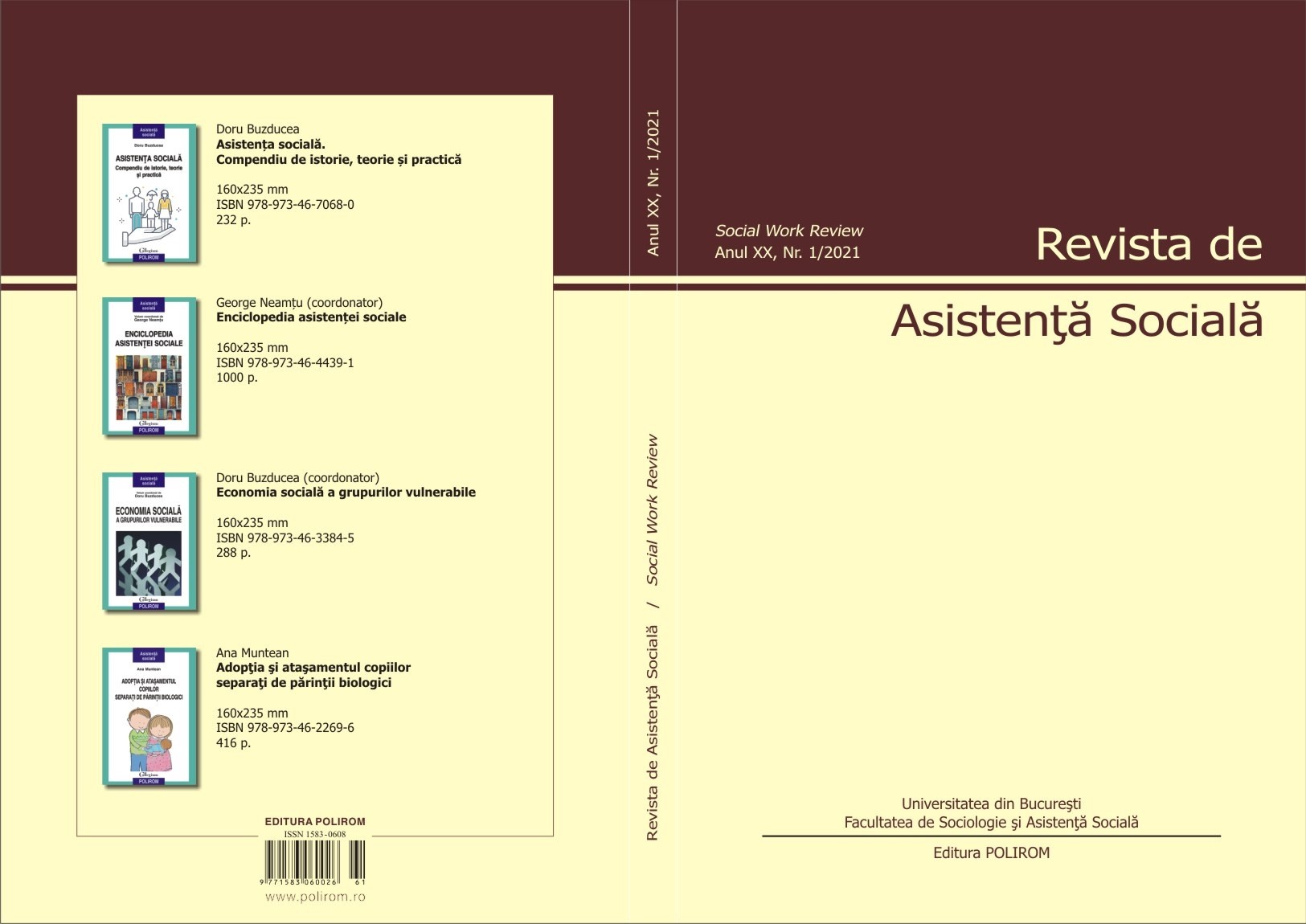The Impact of Children Eating Attitudes toward Body Self-Esteem in Family Context. The Role of Health Professionals in Creating and Improving Eating Habits at Young Ages
The Impact of Children Eating Attitudes toward Body Self-Esteem in Family Context. The Role of Health Professionals in Creating and Improving Eating Habits at Young Ages
Author(s): Beatrice Sarkadi (Măguran), Mona VintilăSubject(s): Methodology and research technology, Substance abuse and addiction, Health and medicine and law, Family and social welfare, Welfare services
Published by: POLIROM & Universitatea Bucureşti - Dept. de Sociologie şi Asistenţă Socială
Keywords: eating attitudes; body esteem; children; life satisfaction; family; social workers; health;
Summary/Abstract: The family plays a very important role in a child's physical and mental development, and the whole system such as: family, schools, communities, governments, corporations must be aware, involved and committed to protect and improve children's health. The aim of this study is to examine the impact that divorced parents have on eating behavior and in this context we observed the eating attitudes of children with divorced parents. Forming and consolidating healthy eating habits from early ages must be a priority in the present context of continuous rising of obesity, diabetes, heart diseases etc. The implication of health professionals, other than doctors, namely social workers, psychologists is essential in teaching the general population scientific knowledge on the topics of healthy eating habits. We also investigated a specific situation: the attitude towards food of children and adolescents in the family context and the relationship between children's eating behavior and body self-esteem which can be a predictor of general self-esteem at children who are in specific situation, namely have divorced parents. For this purpose, we enrolled students from several schools in the Western part of Romania (N = 722; N (divorced parents = 106) aged 8-16 years. The results did not support that those children who have divorced parents also have a negative attitude towards food but a higher level of satisfaction in family life predicts healthier eating attitudes and also there are a significant statistic data that children eating attitude negatively correlates with body self-esteem. Based on the findings, nutrition education and healthy food environment knowledge, attitude and practice on nutrition, eating behaviors and physical activity among both students and parents should be known not just by medial doctors, but also by health professionals like social workers and health psychologists.
Journal: Revista de Asistenţă Socială
- Issue Year: XXI/2022
- Issue No: 1
- Page Range: 139-152
- Page Count: 14
- Language: English
- Content File-PDF

